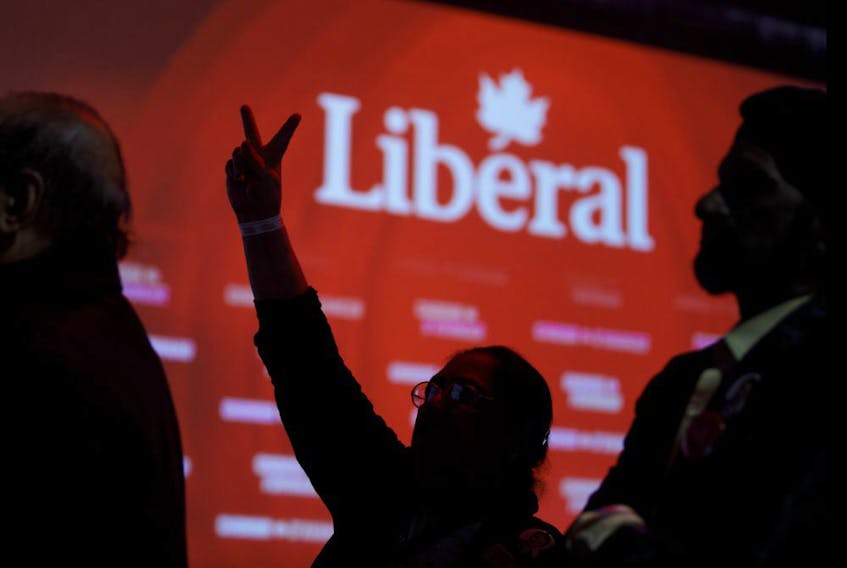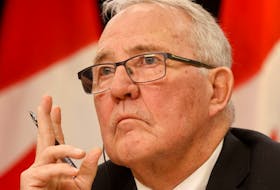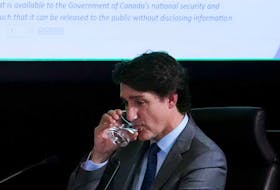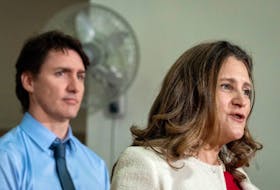Say what you want about the Young Liberals of Canada: they have fertile imaginations. And sometimes those imaginations become reality: the Liberals’ youth wing was a very early force pushing for cannabis legalization. It was thus with a mix of hope and dread that I popped open the YLC’s list of nine policy priorities for the full party’s national convention, scheduled for November. What dreams and/or nightmares are the post-millennials cooking up for us?
Well, from my cranky point of view it is nightmares almost all the way down. But the YLC chose as its No. 1 hit ― as its “fast-track” policy for automatic presentation to the full convention ― something almost charming in its ludicrousness. Yes, it’s our old friend high-speed passenger rail.
“Quebec City to Windsor,” the yoofs urge, “is a current corridor well-suited for high-speed rail with 16 million Canadians living between those two cities.” It is certainly well suited in the sense that the big cities are all more or less in a straight line. Indeed, it seems very nicely suited to the existing passenger railway we have, which no one trusts enough to use for serious business.
From my cranky point of view it is nightmares almost all the way down
Far from being cut out of this futuristic plan, however, VIA Rail is explicitly specified as the operator of the new line. Costs would be shared with the provinces and VIA. Wisely, the YLC resolution chooses not to mention profits. It’s unlikely that these would materialize anyhow if the line is kept “affordable and accessible for use by all Canadians” (who find themselves in Ontario or Quebec).
We pass over to the YLC’s “top three” resolutions that follow their “fast-tracked” motion in favour of a fast track. The Young Liberals, unsurprisingly, have caught the universal basic income fever. The pitch here comes mostly from the left side of team UBI, raising the spectre of “workforce disruption by artificial intelligence automation” (someone’s getting in slightly over their head with the tech talk) and promising that a UBI would give workers bargaining power. It would do this, of course, by making it easier to leave the workforce. Young Liberals love the idea of tightening the labour market as long as we’re not talking about immigration.
The only hint at how we would pay for a universal basic income is a borrowed right-wing talking point: a UBI would “reduce bureaucracy” and cut the costs of administering benefits. Wonderful if true, but no one ever says explicitly how many social workers and civil servants we will be able to turn loose to live on an UBI if we were to adopt one. The Young Liberals are no exception.
The Young Liberals, unsurprisingly, have caught the universal basic income fever
The rest of the top three includes a resolution calling on the federal government to collect better data on gender-based violence at post-secondary institutions; this is probably a fine idea, but you might have spent the past week, as I did, reading news stories about expensive federal programs designed to improve epidemic disease surveillance, most of which turned out to be as much use as a third hole in your nose. So good luck with that. The third entry in the top three is just a garden-variety “green economic recovery” point, with some rage about Ottawa’s purchase of a pipeline showing through between the lines.
Of the five further down-ballot resolutions, two involve drug decriminalization, which puts a small burst of momentum behind signals that the Trudeau government has already been sending. For these, you can count me “in favour, although deeply skeptical.” Another resolution demands “a plan to address the mass incarceration of Indigenous peoples in Canada.” It is the same stuff that was being bandied about 20 years ago ― more money for Gladue reports, more alternative sentencing ― and which was implemented in law by Liberals.
It is the same stuff that was being bandied about 20 years ago
Since then Aboriginal representation in Canadian prisons has rocketed to a new all-time high, or so the federal Correctional Investigator tells us. The policy goal is salutary, but is it not high time policy utopias started coming with failure criteria listed on the packaging?
By now you may have guessed that the remaining items on the list include the outright elimination of post-secondary tuition, another piece of constitution-creep that is also probably the fastest and most efficient way a federal government could increase economic inequality. And with the last item the Young Liberals get creative: they resolve that “mental health services are a medically essential service.” The idea here is that mental illness is exactly like physical illness, but “mental health services are not part of the identified services” in the Canada Health Act. Gasp!
This is quite true ― because the Canada Health Act does not include an explicit list of services that provinces are required to fund. The Act merely requires “comprehensiveness,” and federal governments have mostly avoided fights over the details. (Even threats to abortion access don’t get too much attention nowadays!) The provinces have the constitutional responsibility for spending on mental health, but the premise of this resolution seems to be that they’re doing it all wrong and that the federal government would just do it better somehow. It’s a familiar Liberal theme which only grows more intense as the record of a federal Liberal government becomes sloppier and more awkward.
Almost everybody, and this probably includes most readers, will approve of the aim of investing more money in “mental health.” No one ever suggests looking at what we spend now, applying some test of evidence for effectiveness, and readjusting budgets to concentrate overwhelming energy on what works. If anything does.
The truth, and if you’re hearing it for the first time I apologize, is that mental health doesn’t really equate to physical health from the standpoint of a budget-maker. Anyone who insists that mental health doesn’t elude definition or defy measurement in ways that physical health doesn’t is lying to you. And the resolution doesn’t mention the word “psychiatry,” so the services being declared “medically essential” here might include any of the 20th century’s variations on the sympathetic ear for hire. Or new ones as yet undreamed.
• Twitter: colbycosh
Copyright Postmedia Network Inc., 2020









